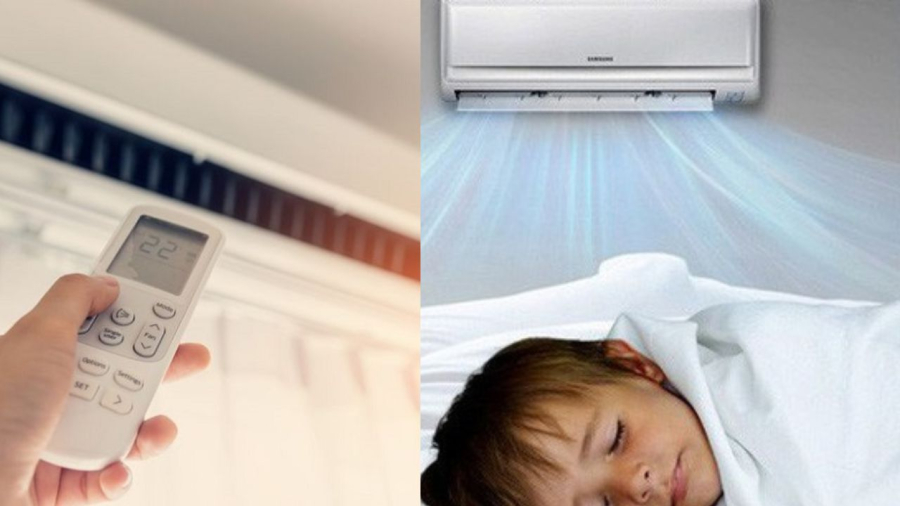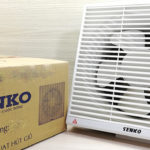Air conditioners are the most used home appliances during hot summer days. They help cool down rooms but using them improperly can also lead to respiratory problems, such as coughing.
Sleeping with your mouth open
When you sleep with your mouth open, the cold air from the air conditioner can dry out the mucous membranes in your mouth, making you more susceptible to sore throats and coughing. While you sleep, your salivary glands do not produce enough saliva to keep your throat moist, and the air conditioner removes moisture from the air, causing your throat to become dry, irritated, and painful. Avoid sleeping in the direct path of the air conditioner’s airflow.

Setting the temperature too low or sleeping directly in the path of the air conditioner is not good for your health
Pointing the air conditioner directly at your face
If the air from the air conditioner is blowing directly at your face, it can dry out and cool the mucous membranes in your nose and throat, increasing your risk of respiratory problems. Therefore, when sleeping in a room with an air conditioner, avoid pointing the air conditioner directly at your head.
Setting the air conditioner too low
On hot days, some families want to cool down quickly by setting the air conditioner to a low temperature, such as 20 or 22 degrees Celsius. This can cause the body to go into shock when exposed to the outside environment. Experts recommend setting the temperature above 26 degrees Celsius. The air conditioner should be set between 26-28 degrees Celsius, and it should only be used at night from bedtime to around 3-4 am the next morning. It is advisable to use a thin blanket when sleeping at night and to clean the air conditioner 2-3 times a year. Families with young children should ensure that the temperature is at least 28 degrees Celsius.
Not cleaning the air conditioner
Some families have not serviced or cleaned their air conditioners for several years after installation. This allows dust and bacteria to build up in the air conditioner and be released into the air, which can irritate the respiratory system and lead to illness. It is important to clean your air conditioner before each hot season.
Keeping the windows and doors closed all the time
When the air conditioner is on, we often keep the windows and doors closed, creating a cold environment that is ideal for bacteria to grow. In addition, keeping the windows and doors closed all the time can lead to stale air and a build-up of toxins, which can also make you sick. Therefore, when the air conditioner is not in use, open the windows and doors to allow fresh air to circulate.
In addition, when using an air conditioner, avoid sitting directly in the airflow after taking a shower, as this can lead to a cold. During the hot season, people with sensitive skin should be careful when using ice water or cold water. Avoid going from extreme heat outdoors to an air-conditioned room or vice versa, as this can lead to heat shock. Allow your body time to adjust to the temperature difference.
Exploring the Pros and Cons of Sleeping in an Air-Conditioned Room
Is sleeping with an air conditioner a good idea? As concerns over the adverse effects of air conditioning on our health increase, it’s important to understand the risks and rewards of using air conditioning while sleeping. Let’s examine the benefits and drawbacks of sleeping with an air conditioner, and the protective measures one should take.
How to Maximize Air Conditioning Comfort for Babies in the Home
Having a new baby in the home brings many considerations and responsibilities, none more important than making sure the baby is safe and healthy. One way to achieve this is proper air conditioning usage. Read on for helpful tips on how to make the best use of air conditioners to keep your newborn safe.




































